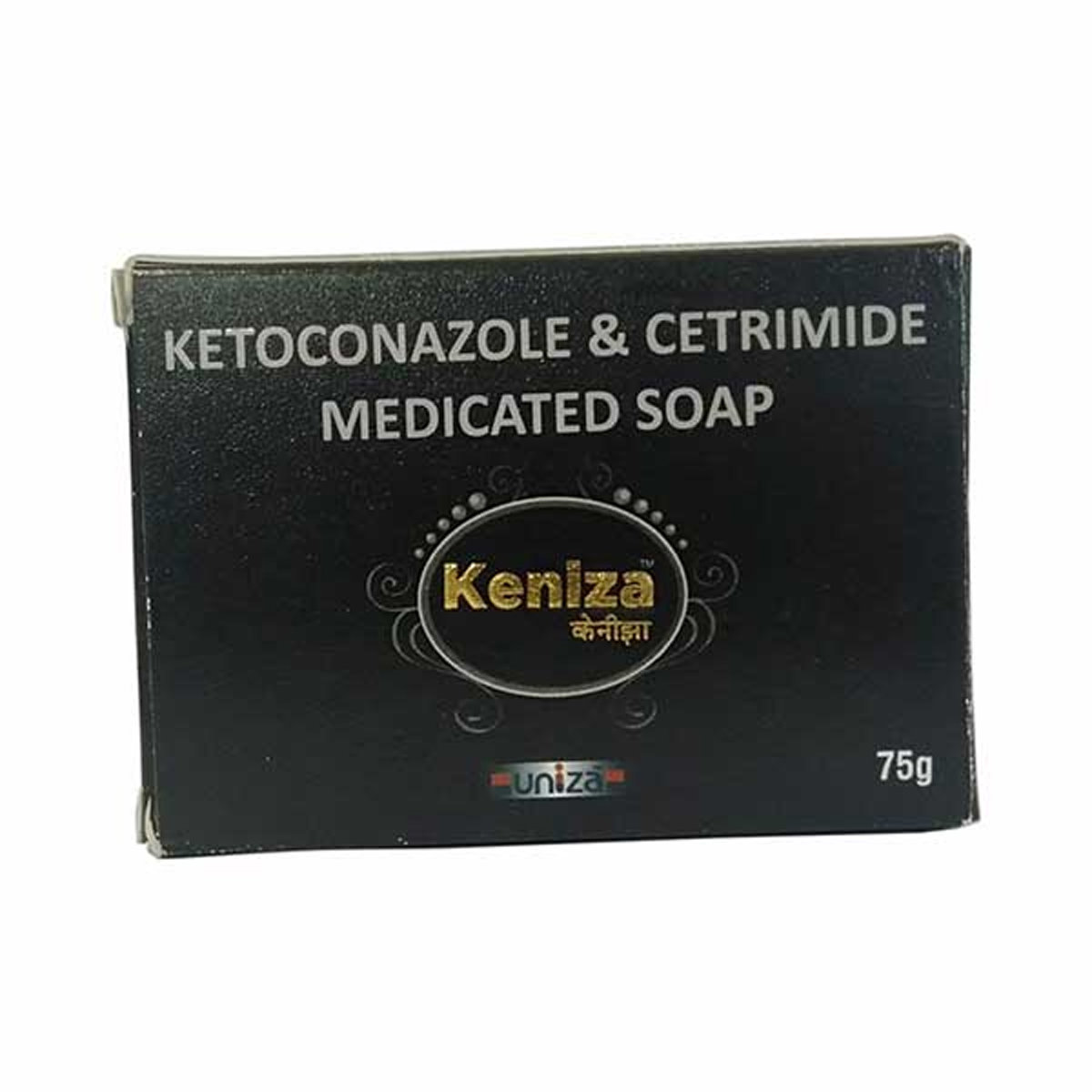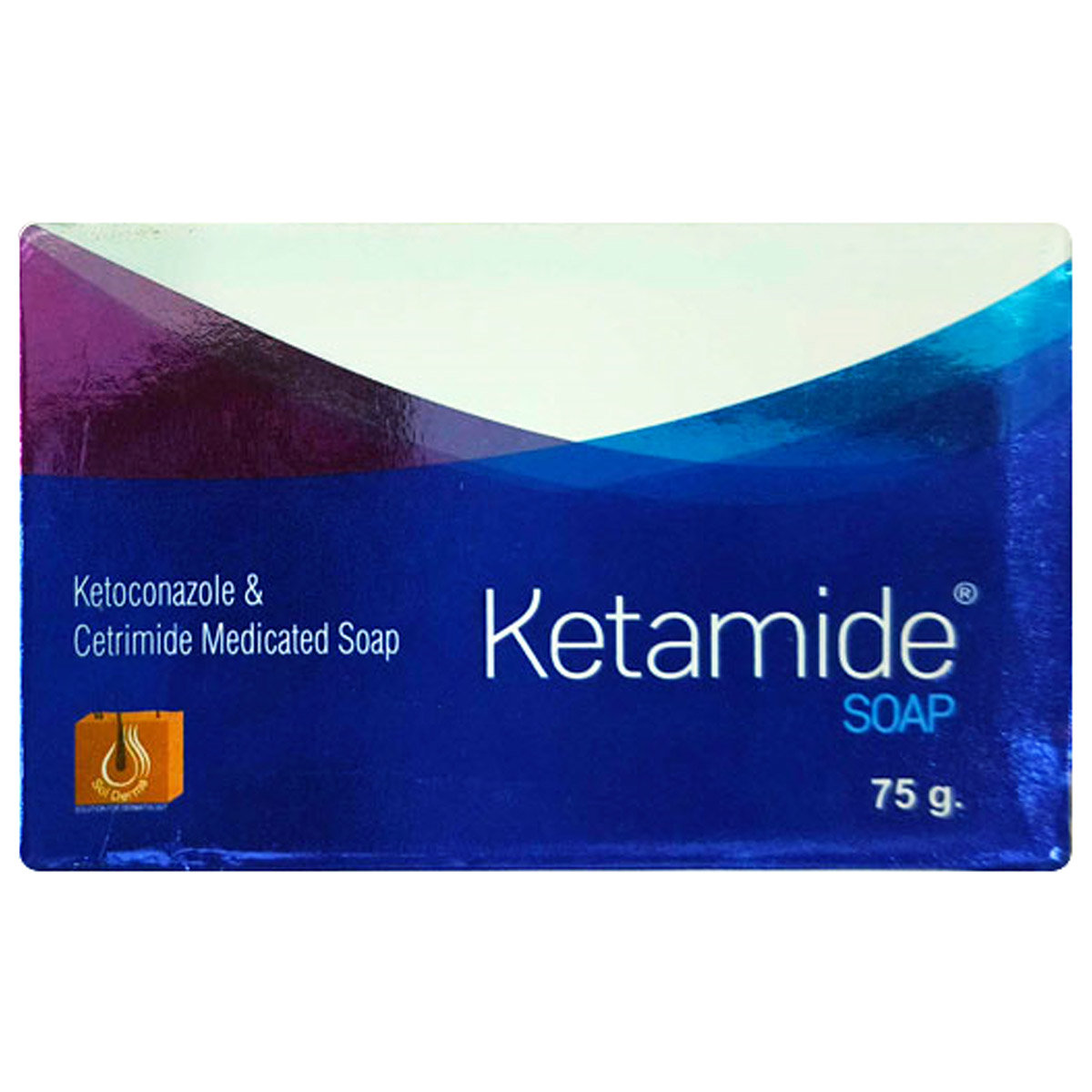Cetrimide+ketoconazole
About Cetrimide+ketoconazole
Cetrimide+ketoconazole is used to treat fungal infections of the skin. Also, it is used to manage dandruff and seborrheic dermatitis. Fungal infection is a skin disease in which a fungus attacks the tissue and causes infection. Dandruff is a scalp condition characterised by dry, itchy, white flakes of skin on the scalp.
Cetrimide+ketoconazole is a combination of two drugs, namely: Cetrimide (antiseptic) and Ketoconazole (antifungal). Cetrimide works by preventing the growth of microorganisms such as bacteria, viruses, and fungi. Ketoconazole works by damaging the fungal cell membranes that are essential for their survival. Together, they help to treat fungal infections of the skin and also dandruff.
Cetrimide+ketoconazole is for external use only. Use Cetrimide+ketoconazole as advised by your doctor. Some people may experience skin irritation, dry skin, a burning sensation, or a skin rash. Most of these side effects of Cetrimide+ketoconazole do not require medical attention and gradually resolve over time. However, if the side effects persist or worsen, please consult your doctor.
If you are allergic to Cetrimide+ketoconazole or any other medicines, please tell your doctor. If you are pregnant or a nursing mother, it is advised to consult a doctor before using Cetrimide+ketoconazole. Avoid scratching the scalp as it may worsen dandruff. Cover your head with a scarf or hat while going out.
Uses of Cetrimide+ketoconazole
Medicinal Benefits
- Helps treat and prevent fungal skin infections such as ringworm, athlete’s foot, jock itch, and candidiasis.
- Ketoconazole, an antifungal agent, works by inhibiting fungal growth and eliminating infection-causing fungi from the skin.
- Cetrimide, an antiseptic and disinfectant, helps kill bacteria and other microbes, preventing secondary infections.
- Aids in cleansing and disinfecting the affected skin, promoting faster healing of infections.
- Helps reduce itching, redness, scaling, and irritation associated with fungal and bacterial skin infections.
- Useful in maintaining skin hygiene in individuals prone to recurrent infections or excessive sweating.
- Helps control dandruff and seborrheic dermatitis when used on the scalp under medical advice.
- Promotes healthy, clean, and infection-free skin by removing dirt, oil, and microbial buildup.
Directions for Use
- Use it as advised by a doctor.
- Check the label for directions before use. Wet the body with water and rub soap gently to produce a rich lather. Leave it for a few minutes and then wash thoroughly with water.
- Avoid contact with eyes, eye lids or mucous membranes. In case soap gets into the eye, rinse with excess water.
Storage
Side Effects of Cetrimide+ketoconazole
- Skin irritation
- Dry skin
- Burning sensation
- Skin rash
Drug Warnings
- If you are allergic to Cetrimide+ketoconazole or any other medicines, please tell your doctor.
- If you are pregnant or nursing, it is advised that you consult a doctor before using Cetrimide+ketoconazole.
- Cetrimide+ketoconazole is for external use only. Avoid contact of Cetrimide+ketoconazole with nose, mouth or eyes. In case Cetrimide+ketoconazole comes in contact with these areas accidentally, rinse with water thoroughly.
- Avoid scratching the scalp as it may worsen dandruff.
- Cover your head with a scarf or hat while going out.
- You are recommended to drink plenty of water as hydrating the body may reduce the number of flakes on the scalp, thus decreasing the appearance of dandruff.
Drug Interactions
Drug-Drug Interaction: Inform your doctor if you are taking any herbal supplements, vitamins or OTC medicines.
Drug-Food Interaction: No interactions found.
Drug-Disease Interaction: No interactions found.
Drug-Drug Interactions Checker List:
Safety Advice

Alcohol
consult your doctorThe interaction of Cetrimide+ketoconazole with alcohol is unknown. Please consult a doctor before consuming alcohol while using Cetrimide+ketoconazole.

Pregnancy
consult your doctorPlease consult a doctor if you are pregnant. Cetrimide+ketoconazole is given to a pregnant woman only if the doctor thinks the benefits outweigh the risks.

Breast Feeding
consult your doctorIt is unknown whether Cetrimide+ketoconazole is excreted in human milk. Please consult a doctor before using Cetrimide+ketoconazole while breastfeeding.

Driving
safe if prescribedCetrimide+ketoconazole usually does not affect your ability to drive or operate machinery.

Liver
safe if prescribedIf you have any concerns about using Cetrimide+ketoconazole in patients with Liver problems, please consult a doctor.

Kidney
safe if prescribedIf you have any concerns about using Cetrimide+ketoconazole in patients with Kidney problems, please consult a doctor.

Children
consult your doctorCetrimide+ketoconazole is not recommended for children unless advised by a doctor.
Habit Forming
Diet & Lifestyle Advise
- Wash your hair regularly with an anti-dandruff shampoo.
- Use conditioners, shampoos, and other products containing tea tree oil, as they may help relieve itching.
- Avoid using hair products containing harsh chemicals such as alcohol and bleach, as they may dry out the scalp.
- Avoid oily hair products that can build up on the scalp.
- Avoid sharing pillow covers with others and change them every 2 to 3 days.
- Spend a few minutes in the sun every day, as some evidence suggests that exposure to ultraviolet light can help control dandruff.
- Manage stress with yoga, meditation, deep breathing and other relaxation techniques.
Patients Concern
Disease/Condition Glossary
Fungal infection: It is a skin disease in which a fungus attacks the tissue and causes infection. Fungal infections may be contagious (spread from one person to another). The symptoms of a fungal infection include scaly skin, blisters, itching, swelling, irritation, and redness. Antifungal medicines are usually used to treat fungal infections.
Dandruff: It is a scalp condition characterised by dry, itchy, white flakes of skin on the scalp. It is not contagious but can be embarrassing. The symptoms include an itchy scalp, red, oily, scaly skin, and oily, large white or yellow flakes. Dandruff may be triggered by a fungus called Malassezia. Certain factors, such as stress, hormones, and age, can cause fungus to multiply more quickly than usual.
FAQs
Cetrimide+ketoconazole is used to treat fungal skin infections and dandruff.
Cetrimide+ketoconazole contains Ketoconazole (antifungal) and Cetrimide (antiseptic). Ketoconazole works by stopping the growth of fungi causing dandruff. Cetrimide works by damaging the DNA (genetic material) of bacteria and other microorganisms. Thereby, kills micro-organisms. Thus, Cetrimide+ketoconazole helps to treat dandruff and provides relief from flaky and itchy scalp.
If you have mild dandruff, you are recommended to wash your hair daily with a gentle shampoo to reduce scalp oiliness. If your regular shampoo does not work or if you have severe dandruff, use an anti-dandruff shampoo.
You are recommended to use Cetrimide+ketoconazole for as long as your doctor has prescribed it. However, if the condition persists or worsens after 2 to 4 weeks of treatment with Cetrimide+ketoconazole, please consult a doctor.
You are not recommended to stop using Cetrimide+ketoconazole without consulting your doctor, as it may worsen the condition. Therefore, use Cetrimide+ketoconazole for as long as your doctor has prescribed it, and if you experience any difficulty while using Cetrimide+ketoconazole, please consult your doctor.
The common side effects of Cetrimide+ketoconazole include skin irritation, dry skin, burning sensation, and skin rash. Most of these side effects do not require medical attention, but if they persist, please consult your doctor.
Cetrimide+ketoconazole should not be used in patients with a known allergy to any of its components. It should not be used on open or damaged skin, as it may cause irritation or systemic absorption.
Cetrimide+ketoconazole should be stored in a cool and dry place, away from direct sunlight. Keep the container tightly closed and out of reach of children.






